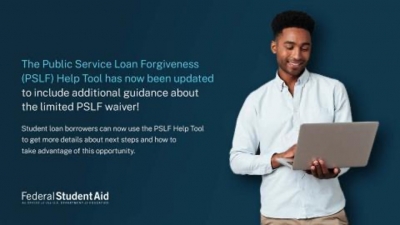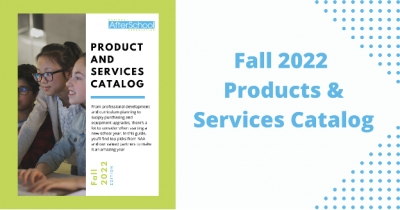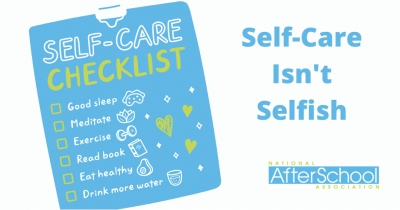News
Check out the latest news about NAA and special announcements pertinent to the field of afterschool.
Champion Food Security: 3 Fall Weekend Projects
Friday, 23 September 2022 08:53September is Hunger Action Month. Organized by Feeding America, this month is a time to reflect and, most importantly, recommit to taking action to support those in our community facing the impossible decision between having nutritious food and paying for essentials like medicine, housing, or education. Food security and hunger connect to many of the components of the Whole Child Model. To honor this complexity but provide tangible action steps, below are three fall weekend projects that I hope inspire you. I’d love to know which ones you try and what you’d add to this list. Tag me on Twitter using @hatchdw or message me on LinkedIn.
Important Student Loan Forgiveness Program Changes are Here!
Tuesday, 20 September 2022 14:01The COVID-19 pandemic resulted in financial hardship for many, including members of the OST workforce. As a result, you may now be eligible for federal student loan forgiveness for your important public service, even if you were not eligible before.
School-Age Licensing Requirement Needs and Considerations
Monday, 19 September 2022 08:05The recently released Practice Brief from the National Center on Afterschool and Summer Enrichment (NCASE) highlights considerations for addressing school-age needs in state child care licensing. NCASE reviewed selected states' school-age childcare licensing requirements and emphasized a variety of ways licensing requirements can and should support school-age providers and the youth they serve. This brief offers insights for licensing agencies to consider when focusing on the needs of school-age programs and providers, including:
The Free Benefit That Makes People Stay
Monday, 19 September 2022 08:04During the height of the pandemic, feeling unsettled in my OST Director position, I thought about what would change how I felt. After all, the job provided comfort during some of the most trying experiences in my personal life. The organization paid me more than others in OST leadership positions, offering me financial security. The job had a flexible schedule that allowed me time to teach part-time at a community college. Finally, I left the position, exhausted from the mental, emotional, and physical workload. Moving on was difficult, but I know it was the best thing I could have done. It wasn't a higher salary that prompted me to take a different position at a new organization, and a raise wouldn’t have kept me with my former employer.
Fall 2022 Products and Services Catalog Now Available!
Saturday, 03 September 2022 10:35From professional development and curriculum planning to supply purchasing and equipment upgrades, there’s a lot to consider when starting a new school year. In this guide, you’ll find top picks from NAA and our valued partners to make it an amazing year!
Celebrate National Coding Week!
Monday, 22 August 2022 12:11National Coding Week (September 19 – 23, 2022) is a time to celebrate and promote tech skills and tech education in OST. Are you looking for resources to inspire young people to learn coding skills and highlight the importance of tech?
Keeping Kids Healthy and Happy!
Thursday, 18 August 2022 10:19According to the Center for Disease Control and Prevention, 1 in 5 children in the US has obesity. September’s Childhood Obesity Awareness Month is a chance to learn more about strategies OST programs can use to support the health and wellness of youth, families, and communities.
Self-Care Isn’t Selfish!
Thursday, 18 August 2022 10:18Working in the OST field means taking care of youth, families, and communities. But how can you be expected to take care of those around you if you aren’t taking care of yourself? Self-care means taking the time to do things that help will help both your physical and mental health.
Stay With Me
Wednesday, 03 August 2022 19:04All too often, employers are asking questions that could help retain a valued employee after the employee is already out the door.
Calling In a New Booklist
Wednesday, 03 August 2022 19:02I recently got into an argument with a white cis male Linkedin business "influencer" about the booklist he released that, amongst the over 100 titles, included almost no women or BIPOC authors. Of course, his responses were defensive: "I read what comes across my desk." Agh.
National AfterSchool Association • 2961A Hunter Mill Road, #626 • Oakton, VA 22124 • info@naaweb.org










